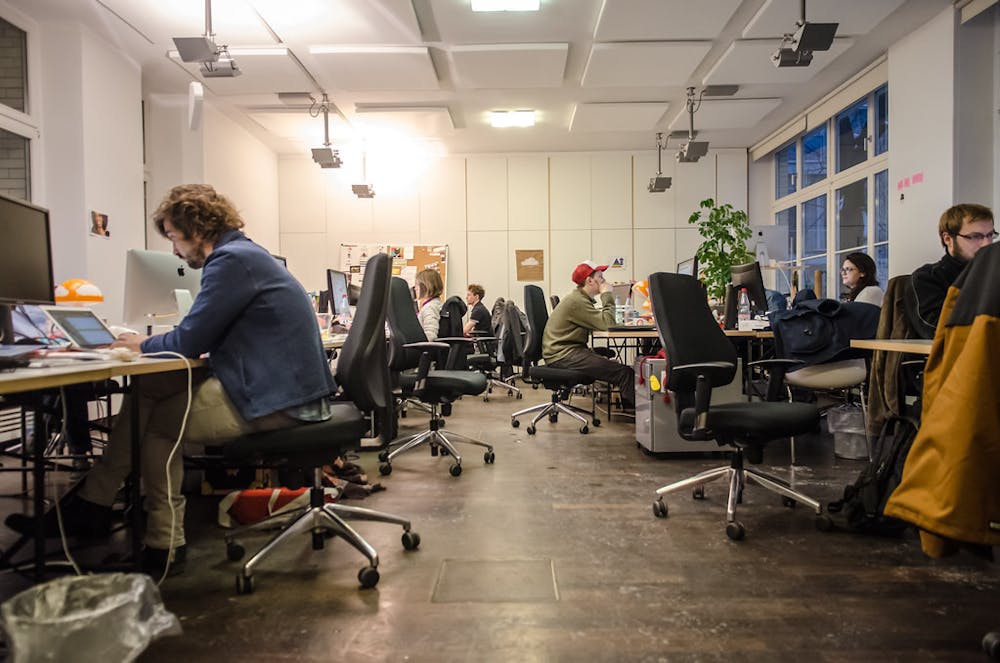FastFoward U’s first Ask a Female Founder Panel was held on March 8 in celebration of International Women’s Day. To discuss the factors, challenges and lessons learned from being a woman founder, Kristen Corlay Sanmiguel, co-founder of Cabilde, Nandita Balaji, co-founder of InfernoGuard, and Selena Shirkin, founder of StetPulse, came together for a discussion. All three women started their ventures with Hopkins Technology Ventures FastForward U and have since scaled up from a prototype level to functioning startups.
Shirkin, a Biomedical Engineering sophomore at Hopkins, says that she had always been passionate about medical technology. When two clinicians approached her during the peak of COVID-19 with an issue they faced disinfecting medical devices like stethoscopes, it immediately piqued her interest. She and her team founded StetPulse with the motive of developing a decontamination pipeline for stethoscopes without causing any detrimental effects on its quality. The existing disinfection mechanisms involve usage of alcohol wipes, which degrade the quality of medical devices.
Balaji, a sophomore majoring in Neuroscience, talked about how FastForward U’s Fuel Accelerator helped push her team’s wildfire detection system from ideation to prototyping. Her startup won a cash prize of $100,000 at the 2022 Arizona State University Innovation Open, a startup pitch competition with 32 participants from several universities.
“It was a big accomplishment and has allowed us to scale our team up. We are now in the process of finalizing the product and breaking it into the market by summer,” Balaji said.
Corlay Sanmiguel shared her findings from the research she completed to build Mexico’s first civil engagement app, Cabilde. Cabilde was founded with a motive to make information about congress accessible to national citizens.
“We don’t need to be a politician to be involved in politics. We need to use the tools at our disposal; it could be anything from poetry to marching in protests,” Corlay Sanmiguel said. “The best way to help someone is to team up with people on different platforms to make a statement.”
Shirkin said that networking and reaching out to clinicians, especially as a student-led team, was difficult. She added that despite the challenges, growing from a two-student team to a medical technology startup was a rewarding experience.
For Balaji, talking with potential customers, building connections and networking played a huge role in making her idea a reality. Corlay Sanmiguel said that the biggest challenge she faced was convincing experienced politicians about the benefits of providing easy access to information about bills and congress voting results to the citizens.
When asked about advice for aspiring entrepreneurs, the three of them attested that it was essential to take advantage of the resources that Hopkins offers, including FastForward U and networking events.
Corlay Sanmiguel added that just cold-emailing people without getting intimidated by their titles might help in making meaningful connections and emphasized the importance of investing in human capital.
“Even if you lack work experience, you might get hired because of the way you present yourself and the vibe you give out,” she said.
The three women each have a clear plan for the future of their projects. Shirkin plans to add more medical devices to StetPulse’s umbrella, make them easily accessible and affordable and extend their reach to other public institutions and homes. Balaji elaborated on how Infernoguard’s next step is to deploy the system on-site and help people whose livelihoods depend on their land. Corlay Sanmiguel’s team is planning on investing more time and effort in building civic engagement apps with increased transparency.





